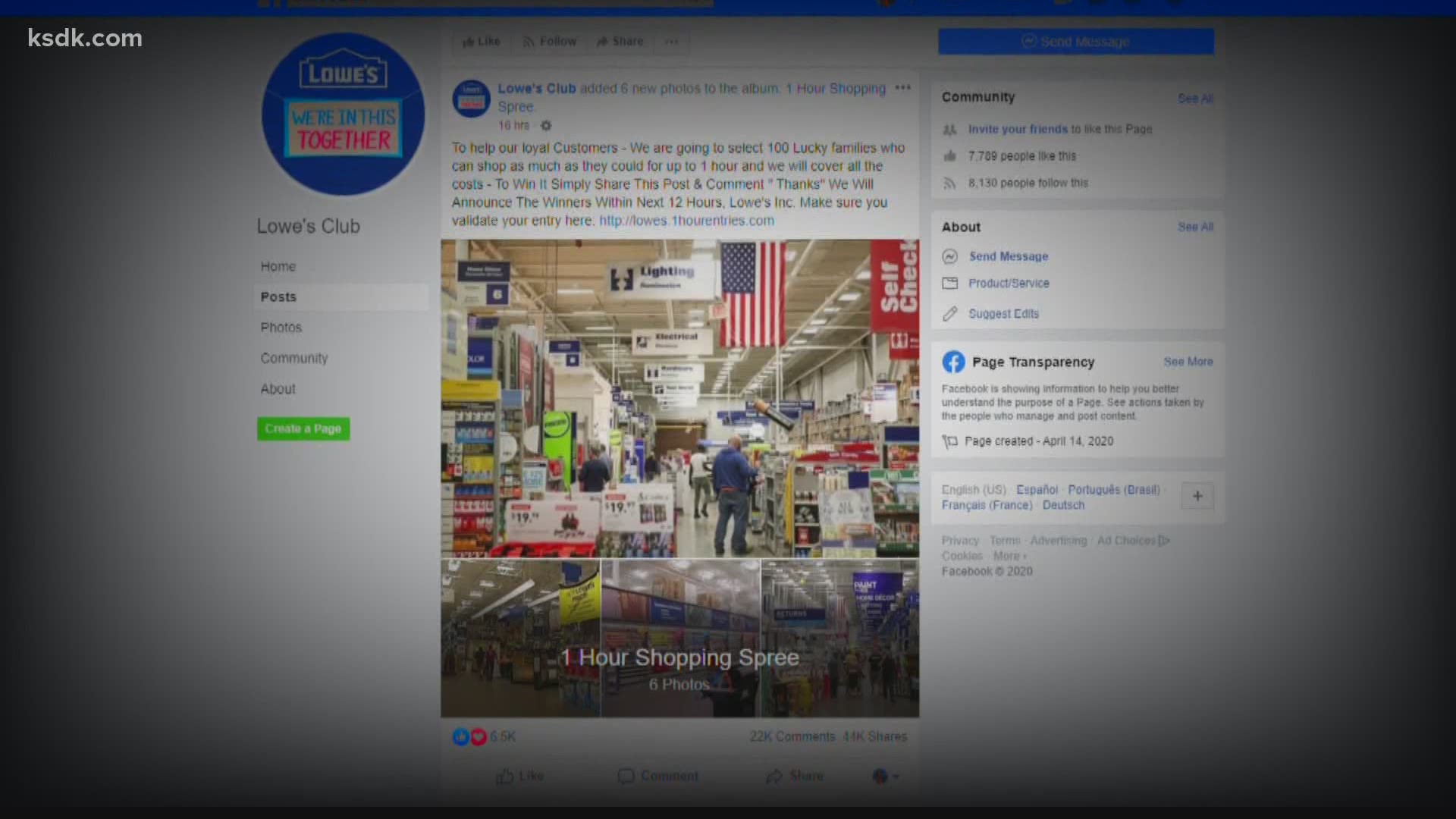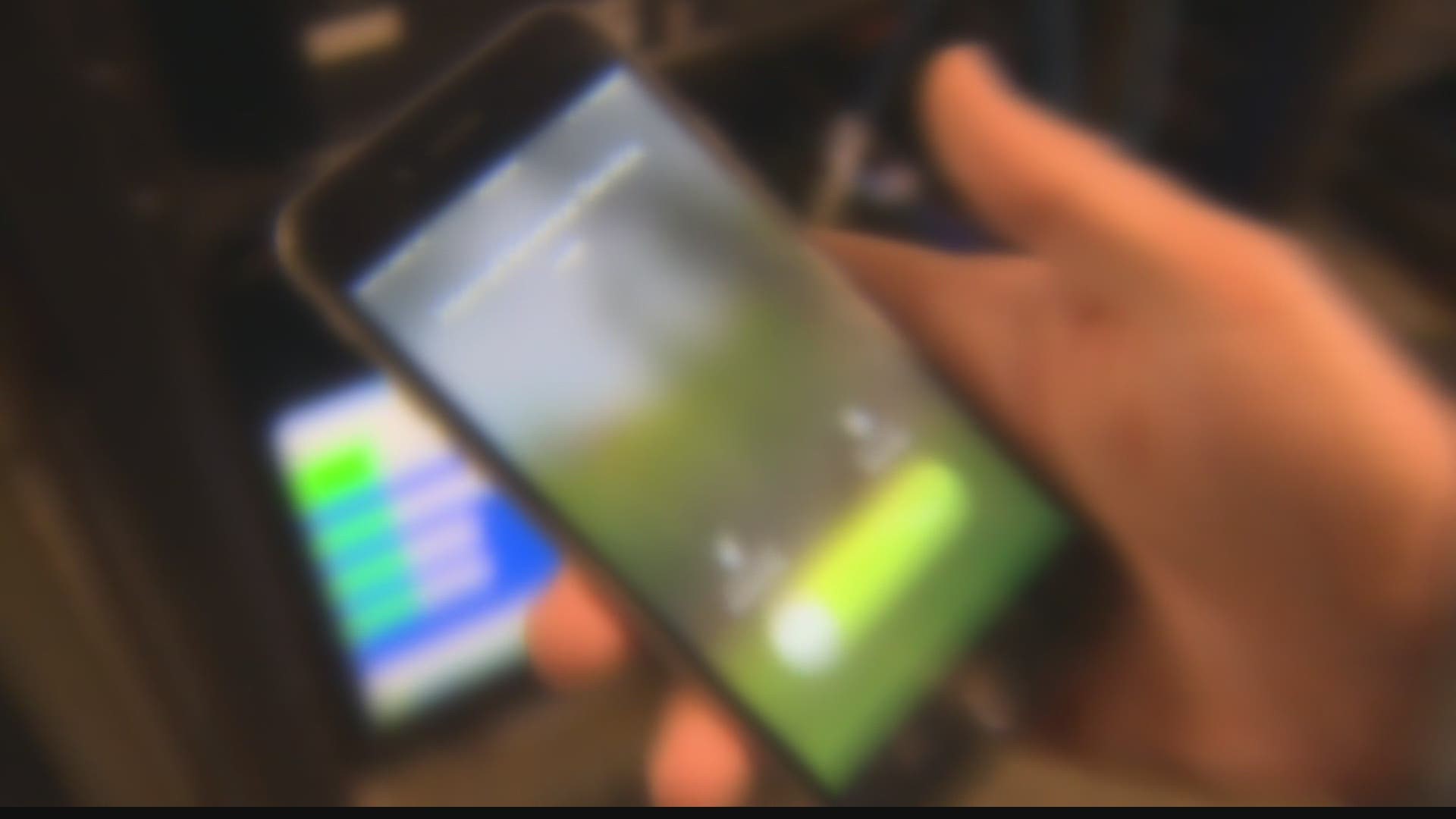ST. LOUIS — For most of us, a trip to the grocery store may be the highlight of your social life. It may be one of the few times you get to see new faces and leave the house.
But, scammers are using heightened emotions about COVID-19 to rip you off --using trusted stores and brands.
Messages like 'we're in this together' and 'thank you heroes' have become the battle cry for the pandemic. People share those messages on social media and it makes them feel better.
Security expert Dave Chronister with Parameter Security said that emotional appeal is exactly what scammers are using to prey on you.
"It seems like a strange way to go about a scam, but really what you have to understand is to have these types of scams to work, they have to have you feeling rather than thinking," said Chronister.
"This scam doesn't just hide behind feel-good messages, but big store names like Lowes and Kroger, too. Companies that consumers feel they can trust," Chronister said.
Scammers use social media sites like Facebook. The posts use legitimate store names in the title plus the word 'club." Some of the pages have thousands of likes and shares.
As you click a little more, you'll see what looks like a compassionate giveaway, like a 'one-hour shopping spree.' However, Chronister said, what appears like a harmless giveaway, simply isn't. The scam comes into play when you try to collect on the amazing offers the page is offering. Chronister calls that 'stage two.'
"Usually they'll ask for information or they'll have you to go to a fake website and create an account. You've given them your email and a password you may be using in other areas, they may ask you for security questions. What they're doing at that point is harvesting your credentials," said Chronister.
He sad people are unknowingly working for the scammer by spreading this message.
"There's a lot of people who spread this 'just to be safe'. What they don't realize is that we call it 'the spreading mechanism,'" said Chronister. "Typically, it's some of the victims that unknowingly bring other victims to the scammer and in this way, through social media, they make it very easy to do."
The I-Team contacted Kroger about the Facebook 'Kroger Club' page and within a matter of minutes, that page was taken down.
A spokesman for Lowe's confirmed that 'Lowe's Club' page was a fake ad that page has also been taken down.
During the pandemic, we're all spending more time online. Security experts advise being careful with what you share. Avoid creating an account or filling out a survey in order to access an offer or coupon. Trust offers only from 'official' sources like the company's web page, or its twitter account if it's verified with a blue check.


